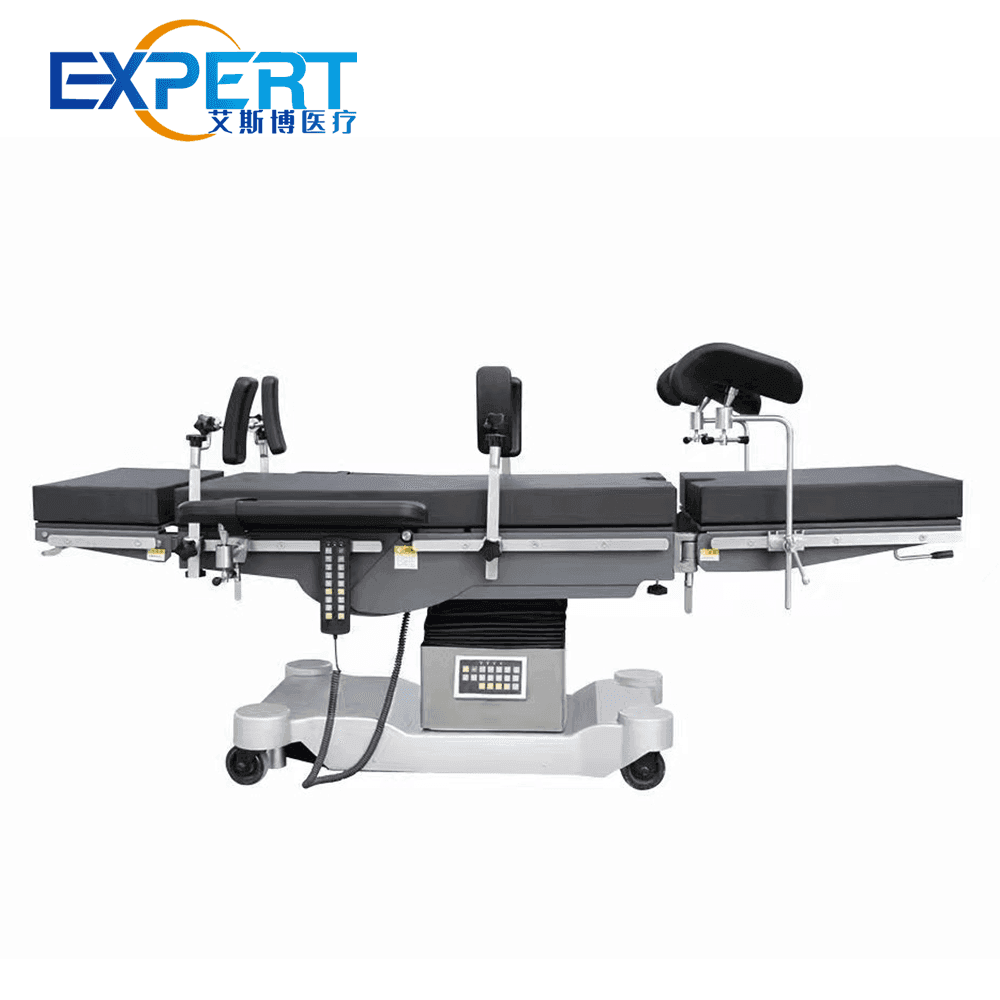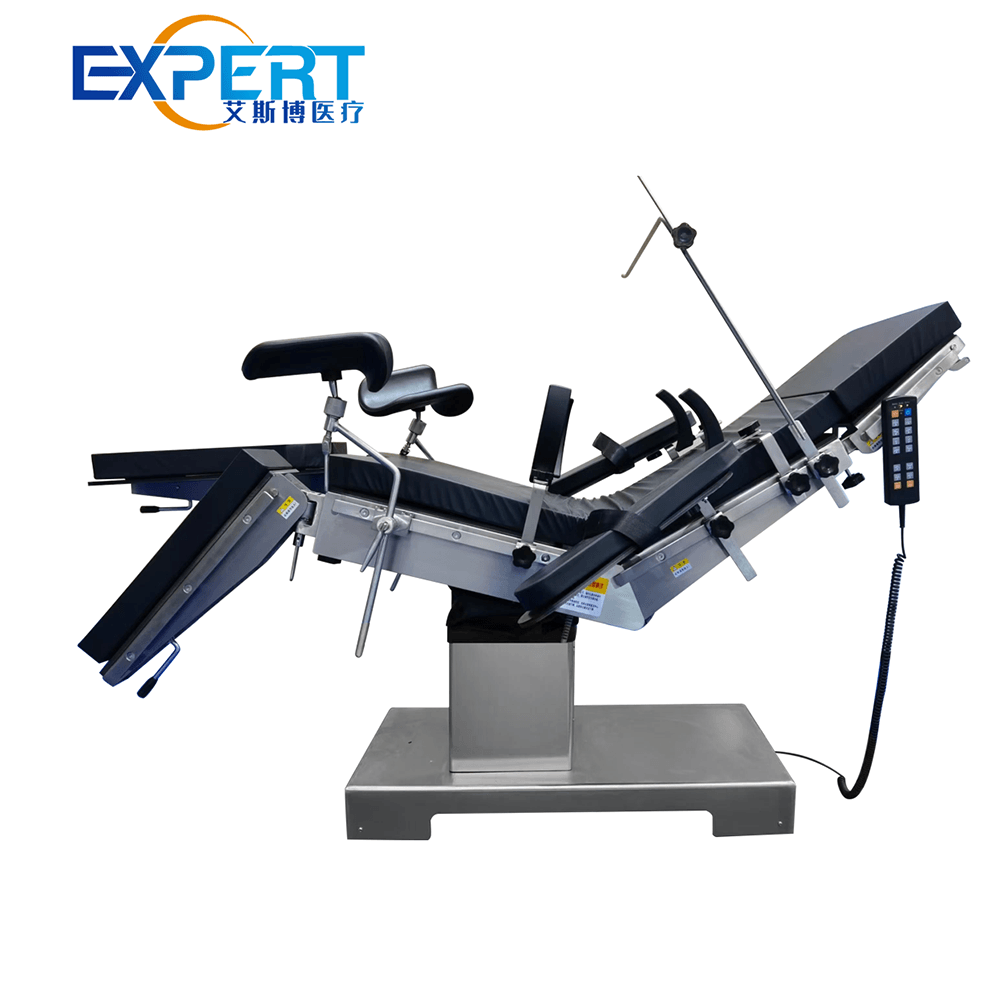Die Anschrift
304 Nordkardinal St.
Dorchester Center, MA 02124
Arbeitsstunden
Montag bis Freitag: 7:00 - 19:00
Wochenende: 10:00 - 17:00
Die Anschrift
304 Nordkardinal St.
Dorchester Center, MA 02124
Arbeitsstunden
Montag bis Freitag: 7:00 - 19:00
Wochenende: 10:00 - 17:00

Die Medizin entwickelt sich ständig weiter, und mit dem Aufkommen neuer Technologien hat sich die Art und Weise, wie Operationen durchgeführt werden, dramatisch verändert. Ein solcher technologischer Fortschritt ist der elektrische Operationstisch.
The medical field is constantly evolving, and with the advent of new technologies, the way surgeries are conducted has changed dramatically. One such technological advancement is the electric operating table. An Electric Operating Table (EOT) is a sophisticated piece of equipment that offers a range of benefits over traditional manual tables. This blog post will explore why upgrading to an EOT is not just a good idea, but a necessary step towards improving patient care and surgical outcomes.
.jpg)
Electric operating tables are designed with a multitude of features that enhance surgical procedures:
There are various types of EOTs available, each tailored to specific surgical needs:
| Typ | Besondere Merkmale | Suitable for |
|---|---|---|
| Allgemeiner Zweck | Versatile positioning | Allgemeine Operationen |
| Orthopädie | Specialized for joint replacements | Orthopädische Operationen |
| Neurochirurgisch | Head and neck positioning | Neurosurgeries |
| Cardiac | Chest and heart positioning | Cardiac surgeries |
| Pädiatrie | Smaller size and safety features | Pediatric surgeries |
EOTs provide surgeons with the ability to make minute adjustments to patient positioning, which is crucial for precision in surgeries.
With features such as pressure relief and ergonomic design, EOTs contribute to patient comfort and reduce the risk of pressure sores.
The ability to quickly and easily adjust the table without manual labor saves time and increases the efficiency of the operating room.
EOTs eliminate the need for staff to manually adjust tables, reducing the risk of injury and fatigue.
While the initial cost of an EOT may be higher than a manual table, the long-term savings in terms of efficiency, patient outcomes, and staff well-being can be significant.
A detailed analysis of the ROI for EOTs is essential to understand the financial benefits of upgrading:
| Faktor | Beschreibung | Impact on ROI |
|---|---|---|
| Effizienz | Time saved in setup and adjustments | Positive |
| Patient Outcomes | Improved surgical precision | Positive |
| Staff Well-being | Reduced strain and fatigue | Positive |
| Wartung | Lower long-term maintenance costs | Positive |
EOTs can be seamlessly integrated with smart operating rooms, enhancing the overall functionality and technology of the surgical suite.
Modern surgical tools and equipment often require compatible tables for optimal performance, which EOTs provide.
EOTs can be equipped with sensors and software that allow for data collection on patient positioning and surgical outcomes, aiding in continuous improvement.

We will examine case studies from various hospitals and clinics that have upgraded to EOTs and the positive impact it has had on their surgical procedures.
Hear from patients and surgeons about their experiences with EOTs and how it has improved their surgical outcomes and comfort.
Upgrading to an Elektrischer OP-Tisch is a forward-thinking decision that aligns with the modernization of healthcare. The benefits of enhanced surgical precision, improved patient comfort and safety, increased OR efficiency, and reduced strain on staff are compelling reasons to make the switch. The long-term financial savings and ROI, along with the integration capabilities with modern surgical suites, make EOTs an indispensable tool in today’s operating rooms.
Q: What are the main differences between an EOT and a manual operating table?
A: The main differences include the ability to electronically adjust the table for precise patient positioning, integrated control systems, and compatibility with advanced surgical tools and smart ORs.
Q: Are EOTs difficult to operate?
A: EOTs are designed with user-friendly control systems that are easy to operate, often with minimal training required.
Q: How do EOTs contribute to patient safety?
A: EOTs have built-in safety features such as emergency stop functions, secure patient restraints, and pressure relief systems to prevent injury or discomfort.
Q: Can EOTs be customized to specific surgical needs?
A: Yes, EOTs can be customized with various attachments and features to suit specific surgical requirements.
Q: What is the typical lifespan of an EOT?
A: With proper maintenance, an EOT can last for many years, often outperforming manual tables in terms of durability and reliability.